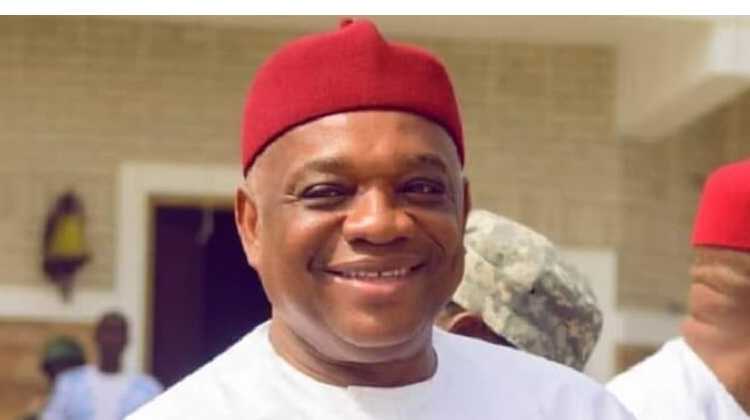Senator Orji Uzor Kalu, a prominent Nigerian politician and former governor of Abia State, orchestrated a significant reunion of his former political appointees and government functionaries who served during his gubernatorial tenure from 1999 to 2007. The gathering, held at his Igbere country home, Camp Neya, transcended political affiliations, bringing together individuals from various political parties, including the All Progressives Congress (APC), All Progressives Grand Alliance (APGA), Labour Party (LP), and the People’s Democratic Party (PDP). Kalu emphasized the non-political nature of the event, highlighting its core purpose as a platform to rekindle relationships, promote unity, and foster harmony among former colleagues. This emphasis on unity underscored a broader message of collaboration and collective progress for Abia State and Nigeria as a whole.
The reunion served as a powerful symbol of bridging political divides for the betterment of the community. Kalu’s initiative demonstrated a commitment to fostering a sense of shared responsibility and collaboration among former colleagues, irrespective of their current political allegiances. By bringing together individuals who had served in his administration, representing diverse political perspectives, Kalu sent a strong message about the importance of unity and working together for the common good, transcending partisan politics. This gesture signified a maturity in political engagement, prioritizing the progress and well-being of the state and the nation over individual political ambitions or party lines.
The timing of the meeting, shortly after the conclusion of elections, was particularly significant. Kalu stressed the importance of supporting elected officials, regardless of party affiliation, in their efforts to deliver the dividends of democracy to the people. He encouraged a culture of constructive engagement and accountability, urging constituents to hold their elected representatives responsible for their performance during elections while supporting their governance efforts in the interim. This approach fosters a healthy democratic process where citizens actively participate in holding their leaders accountable while also providing them with the necessary support to effectively govern.
The positive response from attendees further highlighted the significance of the gathering. Representatives from each of Abia State’s three senatorial districts – Abia North, Abia South, and Abia Central – expressed their appreciation for Kalu’s initiative. These representatives, including Chief P.C. Mba and Chief George Nnanna Kalu from Abia North, Emeka Stanley from Abia South, and Pastor Emeka Inyama representing Abia Central, lauded Kalu’s leadership in bringing everyone together. Their collective endorsement underscored the widespread recognition of the importance of unity and collaboration in achieving progress for the state.
The diverse attendance at the meeting reflected its importance and the broad reach of Kalu’s influence. Prominent figures from various sectors of society gathered at Camp Neya, including Chief Victor Oye, the immediate past National Chairman of APGA; Nkeiruka Onyejeocha, Minister of State for Labour and Employment; and several former commissioners, chiefs of staff, and other high-ranking officials from Kalu’s administration. The presence of such influential individuals highlighted the event’s significance and the respect commanded by Kalu within the political landscape of Abia State. The meeting served as a testament to his enduring political network and his ability to convene key stakeholders across party lines.
The reunion orchestrated by Senator Orji Uzor Kalu was more than just a social gathering; it was a powerful statement about the importance of unity, collaboration, and transcending political divides for the collective good. By bringing together former colleagues from across the political spectrum, Kalu demonstrated leadership and a commitment to fostering a more cohesive and collaborative political environment in Abia State. The positive response from attendees and the diverse representation at the event underscored the significance of this initiative and its potential to contribute to a more unified and progressive future for the state and the nation. Kalu’s message resonated powerfully: while political differences may exist, the shared goal of progress and development should always take precedence, encouraging a culture of support, accountability, and collaborative governance.


